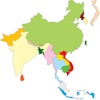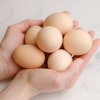25 October, 2007 (United Kingdom)—In April 2007, we reported how poultry breeders across the United Kingdom (UK) were losing millions of pounds in export sales due to time taken for clean up of the Bernard Matthews turkey growing sheds at Holton in the County of Suffolk following the H5N1 outbreak in February 2007. (For more information, please view UK poultry breeders lose millions while Bernard Matthews ‘cleans up’)
After an outbreak of highly pathogenic avian influenza (HPAI), legislation requires poultry litter from sheds and houses to be stacked up and composted for 42 days, followed by two thorough cleansing and ‘de-greasing’ operations at an interval of 7 days. Finally, the houses must be left empty and locked for 21 days. The UK could not re-gain AI-free status until three months after the 21-day lock-up period.
Reports at the time suggested difficulty in disposal of litter was a problem. It could not be spread on farmland and a local power station using poultry litter as fuel refused to take consignments to protect other poultry producers supplying the same plant.
This left composting of litter as the only practical proposition. A recent report from one of the veterinarians involved in dealing with the aftermath of the outbreak has revealed a simple reason why composting took longer than expected.
Talking to Poultry World in October 2007, Stephen Lister of Crowshall Veterinary Practice said practical issues surrounding disposal of litter and feed slowed down the clean-up. According to a report in Farmers Guardian, the final cleansing and disinfection of the infected sheds was completed on 25 June – five months after confirmation of the outbreak.
Young turkeys at the affected farm had not produced enough manure to achieve successful composting of the litter, Moisture and nutrients are required to fuel the microbial processes. As a last resort, the clean-up team brought in cattle slurry under licence to supplement the turkey litter for more rapid and complete composting.















